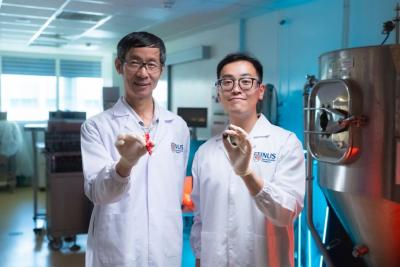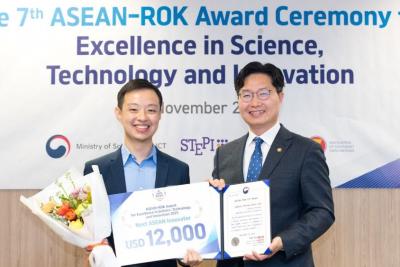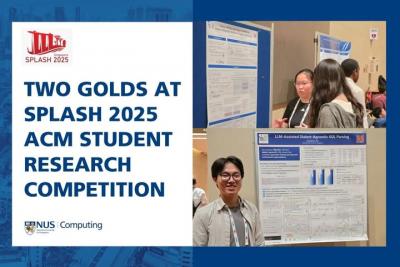Các nhà nghiên cứu NUS phối hợp với các bác sĩ NCIS sử dụng AI hóa trị liệu tối ưu cho bệnh nhân
Based on a pilot clinical trial, close to 97% of dose recommendations by CURATE.AI were accepted by clinicians; some patients were prescribed optimal doses that were around 20% lower on average

Research team behind the PRECISE.CURATE trial (from left) Prof Dean Ho, Dr Agata Blasiak, Dr Raghav Sundar, Ms Anh Truong
A team of researchers from National University of Singapore (NUS), in collaboration with clinicians from the National University Cancer Institute, Singapore (NCIS) which is part of the National University Health System (NUHS), has reported promising results in using CURATE.AI, an artificial intelligence (AI) tool that identifies and better allows clinicians to make optimal and personalised doses of chemotherapy for patients.
Based on a pilot clinical trial – called PRECISE.CURATE - involving 10 patients in Singapore who were diagnosed with advanced solid tumours and predominantly metastatic colorectal cancers, clinicians accepted close to 97% of doses recommended by CURATE.AI, with some patients receiving optimal doses that were approximately 20% lower on average. These early outcomes are a promising step forward for the potential of truly personalising oncology, where drug doses can be adjusted dynamically during treatment.
Developed by Professor Dean Ho and his team, CURATE.AI is an optimisation platform that harnesses a patient’s clinical data, which includes drug type, drug dose and cancer biomarkers, to generate an individualised digital profile which is used to customise the optimal dose during the course of chemotherapy treatment.
“Chemotherapy treatment is often given at fixed doses, based on certain patient parameters. However, these toxicity-guided doses may not result in optimal response to treatment. Using CURATE.AI, which is efficacy-driven, we hope to help doctors to quickly identify the optimal doses that are customised for each patient at different stages of the treatment cycle. The ultimate goal is to improve patient and treatment outcomes,” explained Prof Ho, who heads the Department of Biomedical Engineering under the NUS College of Design and Engineering (CDE) and is a co-corresponding author of the study. He is also the Director of the Institute for Digital Medicine (WisDM) under the NUS Yong Loo Lin School of Medicine (NUS Medicine) and the N.1 Institute for Health (N.1) at NUS.





















